In this video, Mark Tooley speaks with Samuel Goldman, political scientist at George Washington University, about Cultural Marxism, its meaning and history, plus how many conservatives claim it as an expansive explanation for America’s social ills. The reality is more complex and more interesting.
Goldman has addressed this topic here.
Rough Transcript of the Conversation:
TOOLEY: Hello, this is Mark Tooley, editor of Providence, a Journal of Christianity and American foreign policy. And today, we are wonderfully talking to my friend Sam Goldman, who teaches political science at George Washington University in Washington, DC, and is himself an expert on political theology and on matters relating to politics and religion. And I’d like to talk to him, specifically, about what is called cultural Marxism, which I keep hearing portrayed as a panacea for all that is wrong currently in America, at least according to some conservative social critics. Sam, what exactly is this cultural Marxism and how influential is it? Where does it come from?
GOLDMAN: Well, cultural Marxism is a term that’s become sort of a shorthand for the ideas and influence of a group of German immigrant intellectuals known as the Frankfurt School. The Frankfurt School was not a school that you could attend, rather it was an informal description of a group of Marxist intellectuals who established an Institute for Social Research at the University of Frankfurt and then during the 1930s moved to the United States, first to New York, where they were affiliated with Columbia University, and then to California, where they were based in Los Angeles. The most famous figures associated with the Frankfurt School are Theodor Adorno and his co-author Max Horkheimer, Herbert Marcuse, who really plays a key role in accounts of cultural Marxism, but also some less familiar figures, like the legal scholar Otto Kirchheimer, or literary scholar Leo Lowenthal.
TOOLEY: So, these are German thinkers dating originally from the 1920s and 1930s, many of whom immigrated to America, and, according to the narrative, they became the dominant, I suppose, intellectual force in American academia, starting in the 1960s. Is that portrayal based on reality?
GOLDMAN: Well, I would have to say that I don’t think it is. At best, it is grossly exaggerated, of the sort of caricatures of cultural Marxism that one encounters on the internet. Probably only Marcuse really comes close to meeting that description, and I think his influence is still grossly exaggerated. But the story as we find it goes something like this: In the wake of the First World War, Marxist intellectuals in Europe began to wonder why the worldwide proletariat had not refused to fight and overthrow capitalist governments, as Marx had predicted, but had rather, in many cases, sided with their nation-states and fought enthusiastically on behalf of king and country. And some of these intellectuals, often Antonio Gramsci, the Italian thinker, and Georg Lukacs, the Hungarian, began to suggest that membership in the working class was not in itself sufficient to generate a revolutionary consciousness. And they built on the idea of false consciousness that they found in Marx, that culture can mask from workers their true interest. So, they developed a style of argument that was based on the criticism of culture as much as of traditional Marxist interest in economics. And through a complicated series of influences, these ideas were passed on and further developed by the German intellectuals I mentioned, and then brought to the United States in the 1930s and 1940s.
And that story is true as far as it goes. Where I think it becomes questionable, is first of all, it really doesn’t do justice to the subtlety of these arguments. The goal of critical theory—and these thinkers never use the term cultural Marxism; they spoke of themselves as engaged in critical theory—was not exactly to overturn Western civilization, as is often charged. Rather, they saw themselves as defending the elements of authentic human freedom that were present in Western civilization from its self-destruction, which they saw first of all in Nazi Germany, but increasingly by the 1940s, saw also in the Soviet Union. And that’s an important element here. Although they continue to identify as Marxist to one degree or another, most of these thinkers were anti-Soviet and even anti-communist, to the extent that that meant communist parties aligned with Moscow. So, they were not doctrinaire revolutionaries by any means, and in many respects were surprisingly conservative. Adorno’s idea of upholding freedom in mass society meant listening to Beethoven. And they were not at all admirers, in fact bitter critics, of the mass media and popular culture that they found in America.
But second, and I think more importantly, it’s not clear that they had so very much influence. They did have an important, although somewhat complicated, role in American academia, and I think that if you were looking for the strongest evidence of influence of the Frankfurt School or critical theory today, you would find it in American universities. But, it’s just not plausible to me, as is suggested by people who have used this idea—William Lind is probably the first really to put it into broad circulation among conservatives; Patrick Buchanan and others have used it since—that this is the explanation of everything they don’t like that has happened in America in the last fifty or sixty years. Again, I think the account of cultural Marxists seeking to use criticism of culture and sexual liberation to overturn bourgeois society is most true of Marcuse, if it’s true of any of them. Again, Adorno and Horkheimer were actually extremely conservative in their understandings of sex and gender relations. Horkheimer wrote against birth control, for example. But, suppose Marcuse had never lived. Are we really to believe that the social and cultural transformations that have occurred over the last fifty or sixty years would not have happened without his influence? And when it’s stated that way, I think the suggestion that Marcuse or Adorno are somehow the puppet masters of the modern left and all the ills that it has wrought is just not plausible.
TOOLEY: I think I understand you to believe that the social changes that have occurred in America since the 1960s really have their roots in American history and culture, and are not so much imports from anything akin to the Frankfurt School; would that be accurate?
GOLDMAN: Not only is it accurate, that is exactly what the Frankfurt School intellectuals suggested. So, one of their most famous ideas is that of the culture industry. They argued mass media and consumer culture have to be treated as economic and social enterprises, rather than merely as entertainment. And their argument was that even though it presents itself as a form of liberation, what it produces is infantile behavior, self-indulgence, and the erosion of the possibility of participation in a self-governing society. So, their critique of popular culture is almost the same as that of many conservatives. And they argued explicitly that the sexual revolution, in particular, was a product of American consumer culture and popular culture, rather than any plot of their own.
TOOLEY: And what exactly is critical theory?
GOLDMAN: So, critical theory is derived from an idea in Kant. Kant, of course, is most famous for presenting his philosophy as a series of critiques: The critique of pure reason, the critique of practical reason, and the critique of judgment. And what Kant was getting at when he presented his philosophy as an exercise in critique, was that philosophy does not create its own object. It’s always dealing with something that it can’t create. And, in his case, these were the different faculties of the mind, or the different features of consciousness.
What critical philosophy, or critical theory, as it developed in the twentieth century tries to do, is to apply the same insight to culture and society. The idea is that you can’t just dream up from the abstract what you think the ideal form of social order is; rather, you have to position yourself relative to existing institutions and social forms, and figure out how they got to be the way that they are and, as the critical theorists believed, what tendencies they contain within themselves that will tend to undermine, or explode, or degrade. So that’s really what they meant by critical theory. It’s not critical theory in the sense of being negative or debunking.
TOOLEY: And of course, the aspect of critical theory we hear most about of late is our critical race theory. What is that?
GOLDMAN: Critical race theory is an offshoot of the classic critical theory of the Frankfurt School that was developed really after they had left the scene in the 1970s and 1980s. Horkheimer and Adorno both died in the early 1970s. Marcuse lived a little bit longer, to the mid-1970s. And what critical race theory tries to do, is to show that the category of race, which has become naturalized—this is another bit of critical theory jargon borrowed from Marx – reified, to turn the product of human relations into a thing that’s supposed to have its own existence. So, the idea is that we’ve done this with race. We assume that race is a natural category that’s just out there in the world, but it can be shown by means of critical analysis that it is a product of social construction. And that idea has been developed through the 1970s and 1980s by figures like the late Harvard law professor Derek Bell. The pioneering [inaudible] theorists associated with the Frankfurt School actually said close to nothing about matters of race, even when they were discussing American culture. And when they did—again I think to the surprise of some people who know them only by reputation—they were not very politically correct. Adorno, whose interest in classical music I mentioned, he was actually a trained [inaudible], wrote an infamous essay on jazz, in which he says [inaudible] music of the brothels and slums which is stirring up people’s sexual emotions, not even so that they can find sexual gratification, but so that they will spend money. They will go to nightclubs, and buy drinks, and buy records, and buy fancy clothes. That’s an example of the culture industry. But ideas are not always used in ways that reflect the beliefs or intentions of those who develop them. And that’s where the connection to so-called critical race theory exists.
TOOLEY: And what would a conservative critique of critical race theory say?
GOLDMAN: Well, I think there are different critiques, and I certainly couldn’t speak for all of them. My own view would be that what critical race theory tends to do is create a sense of sin or wrongdoing without the possibility of forgiveness. And you and I have talked about this before, how some of the recent efforts in racial reconciliation end up looking like [inaudible]. Whether that’s necessarily a tendency of critical race theory, I’m not sure, because it’s a very general term that has been developed in all sorts of ways that many of its authors would not have approved.
And I think, going back to someone like Adorno, he would not have been shocked that critical race theory has spawned a race relations industry, in which you pay a lot of money to someone like Robin DiAngelo to tell you how to assume responsibility for your racism. On Adorno’s account—and that’s suggested by his analysis of the culture industry—that’s exactly what capitalism does. It turns this profound moral dilemma into a business opportunity.
But I think the question of how these tensions are to be overcome or dealt with looms over the whole enterprise. And this was actually one of the fundamental critiques of critical theory and of the Frankfurt School by more traditional Marxists, who held out hope for a revolution of the proletariat that would establish a literal socialist state. They said, in effect, these people are intellectual pessimists. They think you can never fix anything, you can never do anything, all you can do is engage in philosophical criticism. And one can understand why that might seem deflating and depressing.
TOOLEY: And it’s not very Marxist, is it, to say that there is no solution for the grievance.
GOLDMAN: And this is one of the odd things about the term cultural Marxism, because clearly, these figures we’re discussing were in the Marxist tradition and they would be the first to tell you about it. But they diverged so far from the main currents of that tradition that it is, I would say, true, but in many ways misleading, to describe them as Marxists. And again even though they were bitter critics of capitalist modernity in general, and in the United States in particular, they were also bitter critics of the Soviet Union and the political Marxist project, which they saw correctly as leading to a form of terror and oppression that was barely distinguishable from that of the Nazis.
TOOLEY: So, what is a better terminology to use? So many conservatives describe cultural Marxism as this broad explanation for everything that troubles them in American culture. What’s a better way to describe their concerns that would be more accurate historically and in terms of the present reality?
GOLDMAN: Well, I think it’s important to be specific, and the problem the term cultural Marxism, at least as it has been used, is that it becomes a kind of catch-all. And you see this in some of Pat Buchanan’s books, where he uses the term in this is long litany of terrible things that are all supposed to be the consequence of cultural Marxism. In cases where there is a fairly direct connection between critical theory and specific ideas or practices or institutions, I think that’s a fine connection to make. And as I have written for the American Conservative a few years ago, I think academic policies on speech restriction, which are no longer so academic, do have a pretty direct connection to the criticism of free speech that Marcuse developed in a famous essay on what he called repressive tolerance. So, in that case, there really is a connection and it’s important to talk about. But I don’t think that critical theory or cultural Marxism has anything to do with the sexual revolution or its various consequences. And it seems to me that it’s in that setting where it’s most often used.
TOOLEY: Now you’re a political scientist who is conservative, teaching at a major private university that would not be called conservative. Do you feel like you’re just surrounded by cultural hostility, or is it much more complex than that?
GOLDMAN: It’s much more complex than that. These things vary a great deal not only by university, by particular institution, but also by discipline. And as a number of scholars have argued, political science is actually among the most intellectually and ideologically—for lack of a better word—open discipline. And I suspect that’s because if you spend much of your time studying politics, you have to come to terms with the fact that people disagree, and that on some level, that’s inevitable. My impression, although these are not my fields, is that in the major humanities fields—literary studies, or history—there is a stronger pressure to conform politically, and probably yet stronger than that in the so-called studies departments, many of which were established in the 1970s in response to the student movement of that time, and really which are sort of constructed around specific political commitments. But universities are big places and there really are all different kinds of people within them. So, as I’ve said in various settings in the in the past, concerns about political bias are not altogether false, but they also tend to be exaggerated.
TOOLEY: And are you hopeful that in fact, in the end, free speech and open debate will survive in academia?
GOLDMAN: I try to be hopeful, I have my good moments and my bad ones, as anyone does. And of course, the issue is complicated by the present crisis of higher education. And I don’t think anyone knows—I certainly don’t know—what the higher education landscape will look like when the pandemic recedes and as its economic consequences seem to become clear. So, it’s very difficult to predict. But I don’t think that the time has come to give up, and I am made optimistic when I reflect, that in many cases, where challenges to open debate and free speech have been recognized and publicized, they’ve also been effectively resisted.
TOOLEY: Sam Goldman, political scientist teaching at George Washington University, thank you as always for a very edifying conversation.
GOLDMAN: Thanks Mark, it’s always a pleasure.

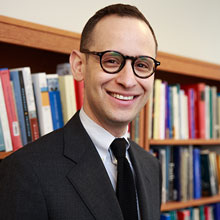

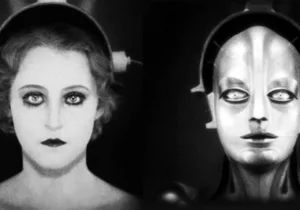
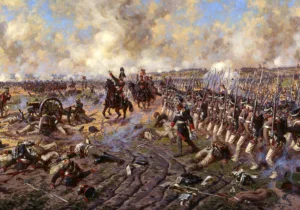
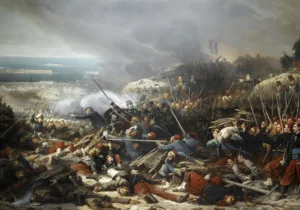
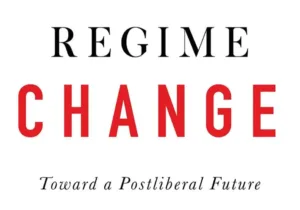

 Sponsor a student for Christianity & National Security 2024
Sponsor a student for Christianity & National Security 2024